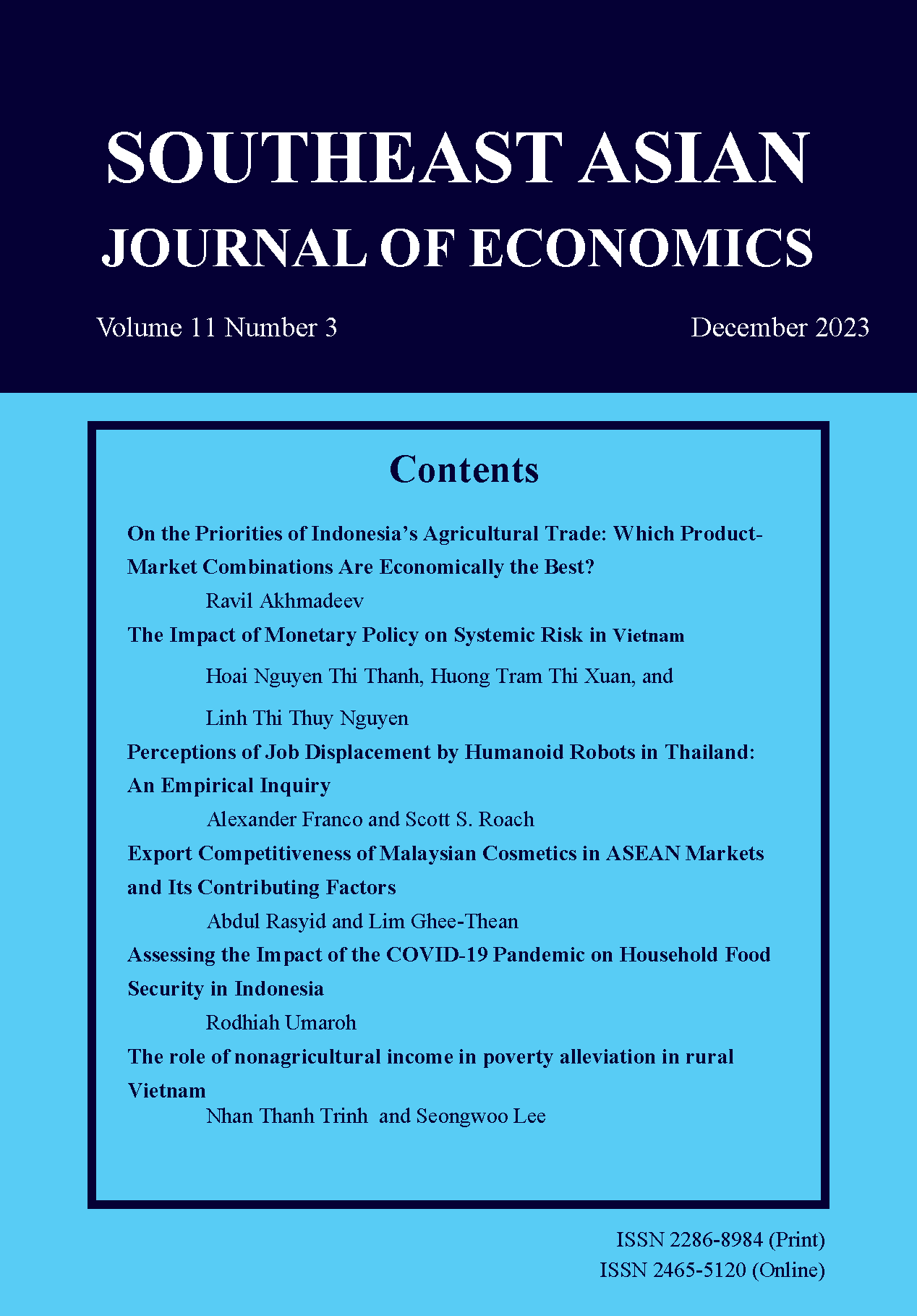The Role of Nonagricultural Income in Poverty Alleviation in Rural Vietnam
Keywords:
households, nonagricultural income, rural, poverty alleviation, VietnamAbstract
This study uses the 2018 Vietnam Household Living Standard Survey census dataset and a combination of binary logistic regressions and Blinder– Oaxaca decomposition to elucidate the role of nonagricultural income on poverty alleviation in rural Vietnam. The results demonstrate a strong positive effect of nonagricultural income on the probability of being a nonpoor household. Specifically, the probability of poor households with nonagricultural income being nonpoor is significantly higher than that of poor households without nonagricultural income. The direct and indirect effects of nonagricultural income (95.7%) primarily contribute to this difference. Nonagricultural income significantly increases the probability of being a nonpoor household among households with many members, a female householder, a Kinh ethnic householder, a young householder, households receiving a subsistence allowance, and those participating in social groups. These findings offer compelling evidence for integrating the nonagricultural economy into rural poverty reduction strategies, which have traditionally predominantly relied on bolstering the agricultural economy.
Downloads
Published
How to Cite
Issue
Section
Categories
License
Copyright (c) 2023 SOUTHEAST ASIAN JOURNAL OF ECONOMICS

This work is licensed under a Creative Commons Attribution-NonCommercial-NoDerivatives 4.0 International License.
The submission of a manuscript implies that the paper is an original work and has not been published elsewhere. The author(s) authorize the journal to reproduce or distribute the paper in printed or other electronic forms.







